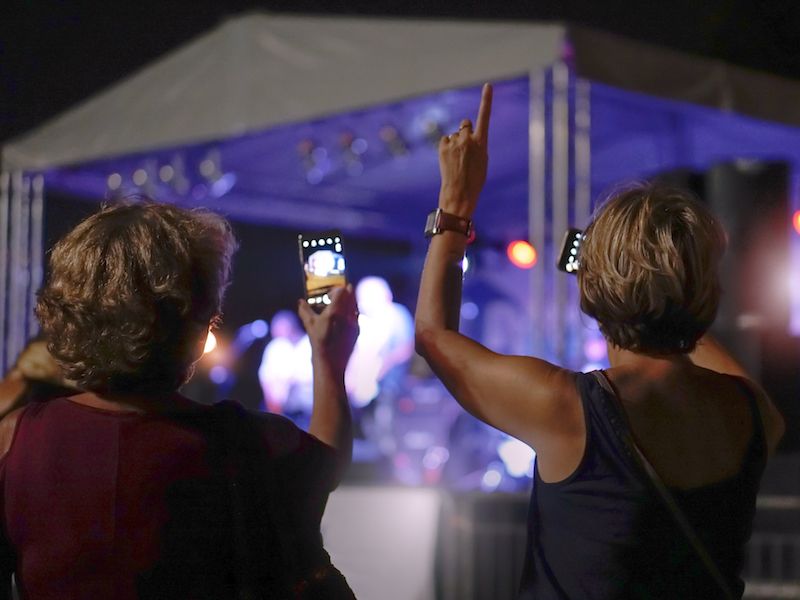
We’ve been looking forward to summer fun all year: trips to the beach, chilling out by the pool, and damaged hearing? That’s right, summer has many hidden risks to your ears, either from loud noises or the external situations you might find yourself in. Any noises over 80 decibels could lead to harm to your ears, while swimming in pools or other bodies of water can bring about lasting hearing loss. You have to take preventative measures and be aware of your surroundings in order to keep your hearing safe this summer season. Here are 6 of the summer’s hidden hearing risks.
When You go to Concerts, Wear Ear Protection
Summer is concert season, but even if attend an outdoor arena, you still should take care of your hearing. Concerts can reach that are over 90 decibels, even at outside concerts, which is inside the danger zone of hearing loss. That’s the reason why it’s always a smart plan to use earplugs whether you’re seeing a show outdoors or indoors. You can still hear the tunes with earplugs in it’s just dampened a little bit. If you’re taking young kids to a show, consider getting them a heavy duty set of earmuffs since their hearing is much more vulnerable than those of adults.
It’s More Than Just Loud at Fireworks
Honestly, there are a lot of reasons to avoid fireworks in the summer. We’re not talking about the specialized 4th of July fireworks show, we mean the backyard fireworks which every summertime cause many of injuries. On top of causing hand traumas, blindness, and home fires, backyard fireworks can also result in significant harm to your ears since they’re known to achieve volume levels of 155 dB. This 4th of July, leave the fireworks to the professionals and enjoy the show from a protected and sound distance.
Hearing Loss Can be Caused by Lawnmowers
If you’re really serious about your yard, chances are you’re out there every week on your mower, using your edger, and trimming your bushes. But have you ever noticed how off your ears feel after you finish, how everything sounds muffled or your ears are ringing? That’s because the lawn tools, which are constantly loud, impact your hearing over time. No doubt you’ve noticed lawn professionals wearing some type of hearing protection, next time you do yard work with noisy power equipment, you should take a cue from them and use earmuffs or earplugs.
How to Protect Your Ears at Beaches And Pools
Huge numbers of people suffer from swimmer’s ear each summer, which happens when the ear canal traps water that has to much bacteria. Swelling and painful earaches are the result when the bacteria infects the ear. These bacteria are usually found in lakes and rivers but could also be found in hot tubs and pools if the water isn’t correctly managed. But if you have your ears treated by a hearing professional you should be fine, and no irreversible loss of hearing will occur. To counter swimmer’s ear, however, you should wear specialized swimming earplugs in the pool and have your pool water tested to be certain the chemical balance is ok.
Water Sports And Boats
If you love the water, the summer season is beach and boating time for you. But, boat and jet ski engines are usually noisy,they can get up to over 100 decibels. Continuous exposure to that kind of noise for a period of about 15 minutes can result in irreparable hearing impairment. In this case also, putting on a pair of disposable foam earplugs is a smart idea.
Car Races Can Hurt Your Hearing
It doesn’t matter what type of auto racing you love, stock cars, midgets, motorcycles, drag racing, Formula 1. If you go to a lot of auto-races this summer, they all present a danger. It’s calculated that volume levels can go beyond 120 decibels at many races, which is absolutely inside the danger zone for hearing injury. As pointed out earlier, your children should use muffs while you should wear earplugs at least. Because you may not be able to enjoy the sounds of any races in the future if you don’t.
